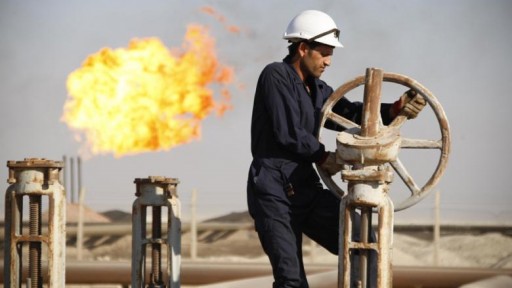- Home
- >
- Commodities Daily Forecasts
- >
- Over-supply, cheating and shale oil: the reasons Saudi Arabia-Russia oil deal won’t work

Over-supply, cheating and shale oil: the reasons Saudi Arabia-Russia oil deal won't work

Oil exporting giants Russia and Saudi Arabia agreed on Tuesday to freeze output levels in order to counter persistently low oil prices, as long as other oil producers also agreed.
The deal could be the first agreement in 15 years between OPEC and non-OPEC countries to support the energy market.
But investors were not impressed, with U.S. WTI and Brent crude oil grades settling lower in the U.S. session after rallying earlier Tuesday on hopes of a supply cut instead of a freeze.
Here's why the market doesn't think much of this deal:
Supply will still outstrip demand
In an oversupplied energy market, a supply freeze simply means much less than a production cut, particularly as Saudi Arabia and Russia pumped a record amount of oil in January.
Russia produced a post-Soviet Union record high of 10.88 million barrels a day last month, while Saudi Arabia's output was near its record high of about 10.2 million barrels, senior commodities editor at The Economist Intelligence Unit (EUI), Sebastien Marlier, said in a note.
Iran may well refuse to join in
Just released from Western sanctions, the oil-producer may refuse to join the freeze because it's keen to increase output to bolster its economy after years of trading curbs.
Iran, which was not present on Tuesday's meeting, had planned to increase output by at least 500,000 barrels a day this year.
On Wednesday, Iran's OPEC envoy told Shargh newspaper that it was "illogical" to ask Iran to freeze its oil production level, Reuters reported.
"Asking Iran to freeze its oil production level is illogical ... when Iran was under sanctions, some countries raised their output and they caused the drop in oil prices ... how can they expect Iran to cooperate now and pay the price?" Mehdi Asali was quoted as saying.
Russia may cheat - again
The non-OPEC producer doesn't have good track record when it comes to production agreements. In the 1990s, Russia failed to respect a similar agreement with OPEC, senior commodities editor at The Economist Intelligence Unit, Sebastien Marlier, pointed out.
In 2001, when the last OPEC and non-OPEC agreement was tabled, Saudi persuaded Mexico, Norway and Russia to contribute to production cuts. But Moscow never followed through and raised exports instead, Reuters reported.
OPEC is already "cheating"
Despite OPEC setting production ceilings and targets, the oil cartel's real production levels have always been a question mark, with compliance historically an issue for various member countries.
"Anybody who even thought there would be talk of a production cut have to know that the one thing [you] can know about OPEC is they cheat. They cheat on everything. Even if they had announced a production cut, nobody would have taken it seriously," said Dennis Gartman, founder and publisher of "The Gartman Letter".
There's also a theory that OPEC may already be over-reporting production already.
"Some people believe that Saudi Arabia et al have been over-reporting production and exports just so that when they go to the OPEC meeting they can say 'Oh yeah, we cut around here and here'," UBS Wealth Management's commodities and FX strategist Wayne Gordon told CNBC's " Street Signs " on Tuesday.
It won't lower supply by much anyhow
OPEC has consistently refused to cut production as kingpin Saudi Arabia sticks to its strategy of low-cost production to squeeze out higher-cost players like shale companies.
With a production freeze, oil prices may be boosted, which in turn could make it economic for shale producers to restart production, possibly taking traditional oil players back to square one.
CNBC
 Varchev Traders
Varchev Traders Read more:
If you think, we can improve that section,
please comment. Your oppinion is imortant for us.











